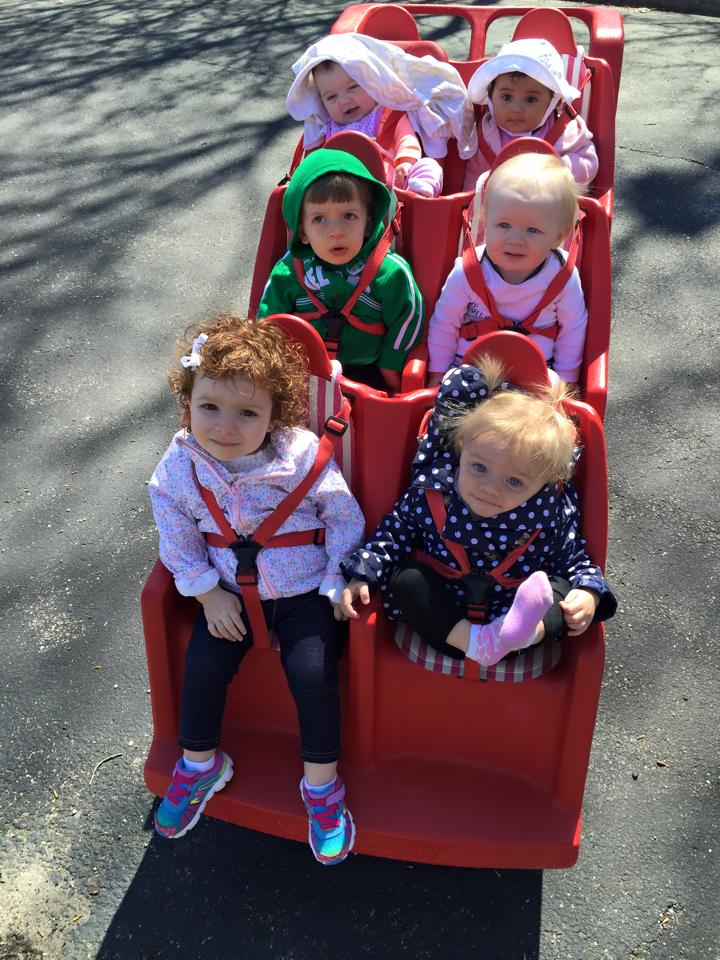6:30 am - 9:00 am Greet Children/Breakfast/Carpet Time
9:00 am - 9:20 am Songs/Puppets
9:20 am - 9:45 am Outdoor or Indoor Play
9:45 am - 10:15 am Snack
10:15 am - 11:00 am Carpet Time / Social Development
11:00 am - 11:30 am Hands on learning activities
11:30 am - 12:00 pm Story Time / Language Development
12:00 pm - 12:30 pm Lunch
12:30 pm - 1:00 pm Outdoor Play / Gross Motor
1:00 pm - 1:30 pm Carpet Time / Fine Motor
1:30 pm - 2:00 pm Art
2:00 pm - 2:30 pm Music
2:30 pm - 3:00 pm PM Snack
3:00 pm - 3:30 pm Story Time / Flannel Board
3:30 pm - 6:00 pm Carpet Time/ Outdoor / Indoor Play/Sensory Activities/Fine Motor
- Diapers will be changed at a minimum of every two hours or as needed
- Children will nap according to their schedule
- Bottles will be fed as needed
- Schedules are adjusted to meet the needs of our students
Physical Development
- Playing with toys. Grasping, pulling, kicking, rolling balls, and building with blocks.
Gross Motor Development
- We provide areas for the infants to develop their gross motor skills. They can roll, climb, and crawl on indoor mats. They can play in an exerciser, scoot on ride-on-toys and play outside on small seesaws, and slides.
Fine Motor Development
- Stacking blocks and playing with small toys. Allowing the children to pick up their own food. (Cheerios, Raisins, etc.)
Emotional Development
- Providing the children with a loving and nurturing environment. Having consistency in their schedule for security. Hugging, cuddling, talking, rocking and singing to the children.
Intellectual / Language Development
- Reading stories with bright and colorful lifelike pictures. Singing songs, performing finger plays and puppets with the children.
Social Development
- Engaging in playtime with the other children and sharing objects.
Foreign Language
- Introducing Sign Language and music in different languages.
Music/Movement
- Singing songs, fingerplays, flannel board nursery rhymes, dancing, and parachute play.
Art
- Supervised coloring, painting, and play-dough (non-toxic or edible)
Sensory/Tactile
- Introduction of different tactile materials. Learning through the senses: Smell, touch, sight, hearing, taste and through hands on experiences and activities.
